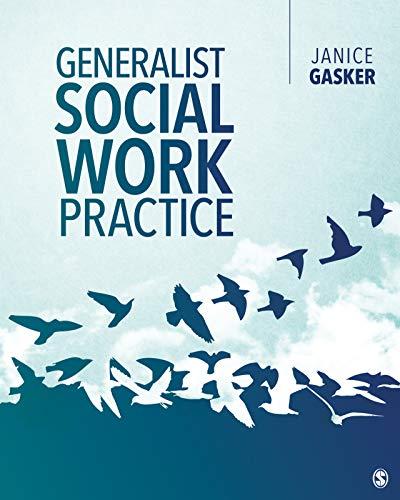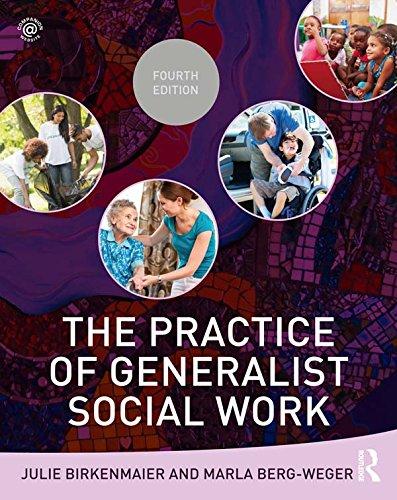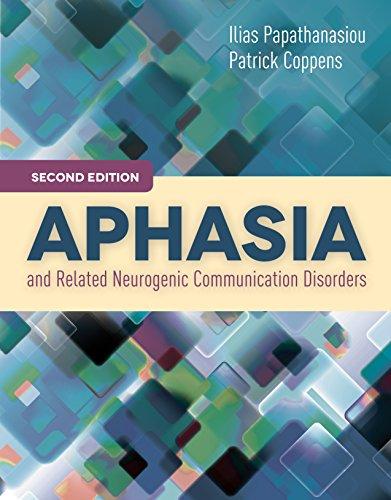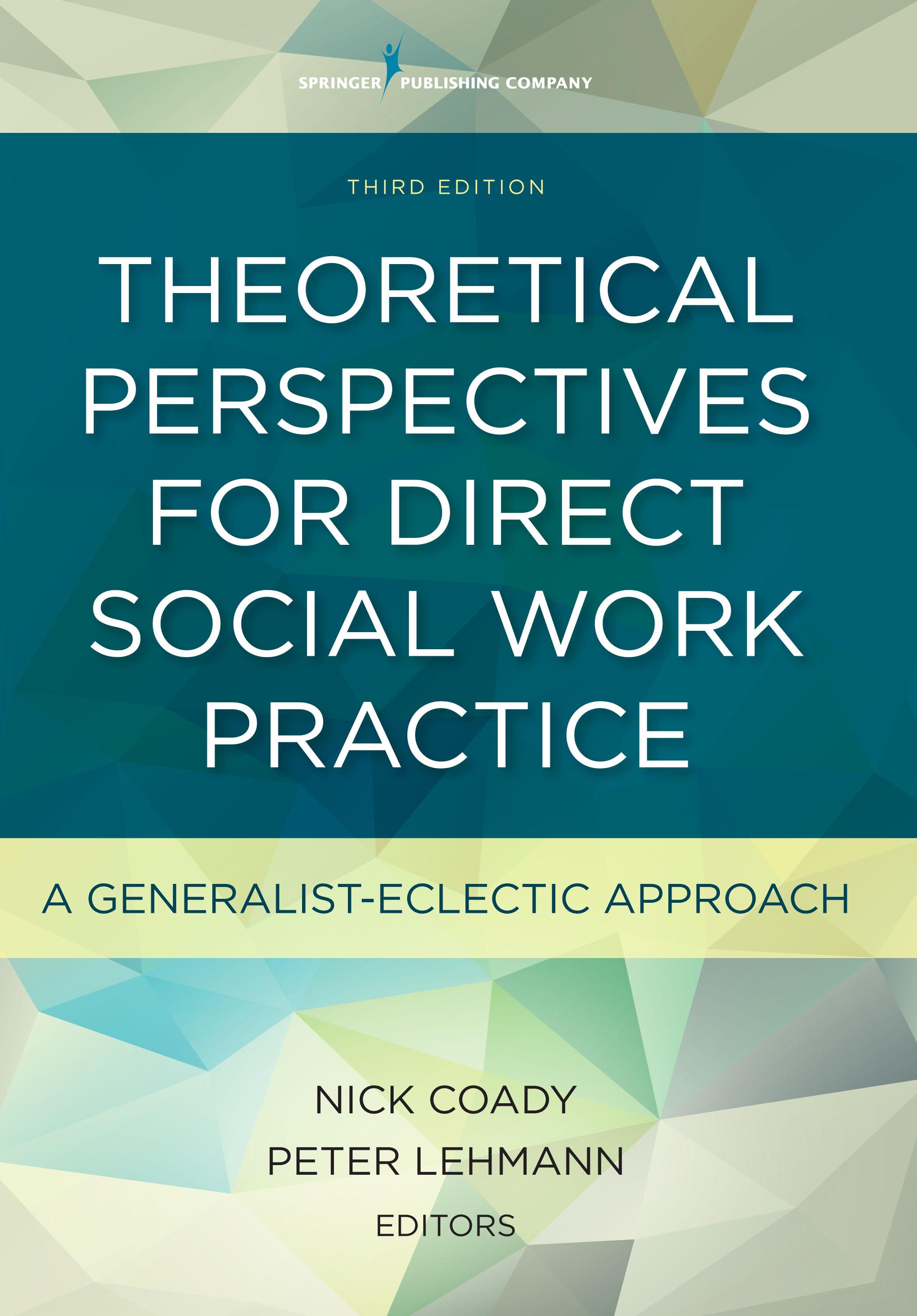Alice in Lalaland Cluney
https://ebookmass.com/product/alice-in-lalaland-cluney/
ebookmass.com
Aphasia and Related Neurogenic Communication Disorders 2nd Edition, (Ebook PDF)
https://ebookmass.com/product/aphasia-and-related-neurogeniccommunication-disorders-2nd-edition-ebook-pdf/
ebookmass.com
Little Monsters Rule!: The Funny New Illustrated Children?s Picture Book, Packed Full Of Monsters, From Number-one Bestselling Author David Walliams! Walliams, David David Walliams
https://ebookmass.com/product/little-monsters-rule-the-funny-newillustrated-childrens-picture-book-packed-full-of-monsters-fromnumber-one-bestselling-author-david-walliams-walliams-david-davidwalliams/ ebookmass.com
America’s Courts and the Criminal Justice System 13th Edition – Ebook PDF Version
https://ebookmass.com/product/americas-courts-and-the-criminaljustice-system-13th-edition-ebook-pdf-version/
ebookmass.com
The Lunchtime Chronicles: Pinot Grigio Rose Marie & Lunchtime Chronicles
https://ebookmass.com/product/the-lunchtime-chronicles-pinot-grigiorose-marie-lunchtime-chronicles/
ebookmass.com
Contributors ix
Preface xv
Share Theoretical Perspectives for Direct Social Work Practice: A Generalist-Eclectic Approach, Third Edition
PART I: THE GENERALIST-ECLECTIC APPROACH
1. An Overview of and Rationale for a Generalist-Eclectic Approach to Direct Social Work Practice 3
Nick Coady and Peter Lehmann
2. The Science and Art of Direct Practice: An Overview of Theory and of a Reflective, Intuitive-Inductive Approach to Practice 37 Nick Coady
3. The Problem-Solving Model: A Framework for Integrating the Science and Art of Practice 61
Nick Coady and Peter Lehmann
PART II: METATHEORIES FOR DIRECT SOCIAL WORK PRACTICE
4. Critical Ecological Systems Theory 81
Michael Rothery
5. Individual and Family Development Theory 109
Elaine P. Congress
6. Strengths-Based Social Work: A Social Work Metatheory to Guide the Profession 131
Catherine A. Simmons, Valerie B. Shapiro, Sarah Accomazzo, and Trevor J. Manthey
PART III: MID-LEVEL THEORIES FOR DIRECT SOCIAL WORK PRACTICE
Section A: Psychodynamic Theories
7. Attachment Theory 159
Debbie Wang and Carol A. Stalker
8. Relational Theory 185
Cheryl-Anne Cait
9. Self Psychology Theory 203
James I. Martin and Edward J. Alessi
Section B: Cognitive Behavioral Theories
10. Cognitive Behavioral Theory and Treatment 223
Norman H. Cobb
11. The Crisis Intervention Model 249
Karen S. Knox and Albert R. Roberts
12. The Task-Centered Model 273
Blanca M. Ramos and Eleanor Reardon Tolson
Section C: Humanistic Theories
13. Client-Centered Theory 295
Michael Rothery and Leslie Tutty
14. Existential Theory 313
Elizabeth Randall
15. Emotion-Focused Therapy 335
Jeannette Bischkopf
Section D: Critical Theories
16. Feminist Theories 357
Sarah Todd
17. Empowerment Theory 373
Jean F. East
Section E: Postmodern Theories
18. Narrative Therapies 391
Rudy Buckman and Jonathan Buckman
19. Collaborative Therapy 417
Adriana Gil-Wilkerson and Susan B. Levin
20. Solution-Focused Therapy 435
Jacqueline Corcoran
PART IV: SUMMARY AND CONCLUSION
21. Revisiting the Generalist-Eclectic Approach 453
Nick Coady and Peter Lehmann
Index 469
Contributors
Sarah Accomazzo, PhD, ACSW, is a postdoctoral scholar with UC Berkeley’s Center for Prevention Research in Social Welfare (CPRSW). Her research focuses on mental health care (youth, families, adults) in public health systems, with particular focus on improving service delivery for urban, diverse populations who are involved in multiple systems and face multiple life stressors. Also, Dr. Accomazzo is interested in strengths-based assessment and the effects of using strengths and strengths-based practice in therapeutic and system interventions with individuals with severe mental health issues and/or exposure to traumatic experiences. She maintains a social work practice in San Francisco’s public mental health system.
Edward J. Alessi, PhD, is assistant professor at the School of Social Work at Rutgers, The State University of New Jersey. His scholarship investigates the effect of minority stress on the mental health of sexual and gender minority populations; examines mental health practitioners’ use of affirmative practice; and seeks to advance clinical practice with marginalized and oppressed populations. His research has been published in journals such as Psychotherapy, Psychotherapy Research, and Psychological Trauma: Theory, Research, Practice, and Policy. Dr. Alessi recently served as guest editor for the Clinical Social Work Journal’s first special issue on Clinical Practice with LGBTQ Populations. A clinical social worker since 2001, he has worked primarily in outpatient mental health and has been an independent practitioner since 2004.
Jeannette Bischkopf, PhD, is a professor in the Faculty of Social Work and Health at Kiel University of Applied Sciences (Germany), where she teaches social and clinical psychology, counseling skills, and research methods. Her research has focused on service user perspectives, mental illness and family caregivers, and the role of emotions in counseling and therapy. Her authored books in German include a self-help manual for families with a depressed family member.
Jonathan Buckman, BA, is a graduate of New York University and is currently an MSW candidate at the University of Michigan with special interest in narrative informed therapy, play therapy, and attachment theory. Jonathan is an avid reader and practitioner with special interests in meditation, chess, philosophy, music, and tai chi. Prior to entering the MSW program, Jonathan was employed as a New York City charter schoolteacher where he was responsible for designing curriculum, tutoring math and reading, and coaching nationally ranked chess teams.
Rudy Buckman, EdD, is entering retirement after a career in teaching psychology and counseling, working as a therapist and clinical coordinator at a large urban nonprofit community counseling center, and supervising practicum/internship students. His research interests include narrative informed therapy, competencybased therapy approaches, resilience, and the relationship between therapy and social justice. He has published several journal articles/book chapters and presented numerous workshops at state, national, and international professional conferences.
Cheryl-Anne Cait, PhD, is an associate professor at the Faculty of Social Work at Wilfrid Laurier University. Her research is in the area of bereavement and identity using qualitative methodologies, as well as the effectiveness of mental health programs and interventions. Cheryl-Anne teaches courses in social work and reflexive practice, research methods, and death, dying, and bereavement. She has 20 years of experience working as a clinical social worker and in community mental health with children, adolescents, and their families. Cheryl-Anne has worked in both inpatient and outpatient psychiatry. She enjoys thinking and writing about contemporary psychoanalytic theory, specifically relational theory and intersubjectivity, supervisory practice, bereavement, identity and spirituality, and the interplay between subjectivity, practice, and research.
Nick Coady, PhD, is professor and dean, Faculty of Social Work (FSW), Wilfrid Laurier University (WLU), Waterloo, Ontario, Canada. Dr. Coady has been with the FSW/WLU since 1994; prior to that, he was a faculty member in the FSW at the University of Calgary for 5 years. His practice background includes residential child welfare work, individual and family counseling with high-risk adolescents, and group work with abusive men. Dr. Coady’s teaching, research, and publications have focused primarily on the importance of relationship and other common factors in various fields of direct practice, including adult psychotherapy, children and youth mental health, and child welfare. He will be retiring from his academic career in July 2017.
Norman H. Cobb, PhD, LCSW, has taught in schools of social work for 33 years. He joined the School of Social Work at the University of Texas at Arlington in 1989 and is currently an associate professor. Although he has taught BSW, MSW, and PhD courses, he primarily teaches second-year master’s mental health courses, such as the Seminar in Cognitive-Behavioral Interventions. Dr. Cobb graduated with his PhD in social work from the University of California, Berkeley, and his MSW from the University of Texas at Arlington. He maintains a small clinical practice with adolescents and adults. He has been recognized by students and peers for teaching and is a member of the Academy of Distinguished Teachers.
Elaine P. Congress, PhD, is a professor and associate dean at Fordham University Graduate School of Social Service. Dr. Congress has extensive practice, administrative, and academic experience with many national and international presentations on clinical practice, assessment, social work education, cultural diversity, immigrants, and social work ethics. In addition to her many journal articles and book chapters, her recent books have included Multicultural Perspectives in Working With Families, Social Work With Immigrants and Refugees, and Teaching Social Work Values and Ethics. Dr. Congress developed the culturagram, a family assessment tool to promote engagement, understanding, and treatment planning with families from diverse cultural backgrounds.
Jacqueline Corcoran, PhD, LCSW, is a professor at the Virginia Commonwealth University School of Social Work, where she has been on the faculty since 2000. She also served on the faculty at the University of Texas at Arlington from 1996 to 2000. Dr. Corcoran has written over 50 journal articles and 14 textbooks that are used in schools of social work throughout the United States. Her website is www .jacquelinecorcoran.com.
Jean F. East, PhD, is a professor at the Graduate School of Social Work at the University of Denver. Dr. East has over 40 years of practice experience in the Denver community working in nonprofit agencies. She cofounded Project WISE in 1995, a nonprofit organization that implemented an empowerment model combining trauma and clinical work with advocacy and community organizing with women who are financially vulnerable. Her research interests include women in poverty and empowerment practice for women from a feminist perspective. Her teaching interests are macro practice and leadership.
Adriana Gil-Wilkerson, MSc, is a marriage and family therapist and supervisor in Houston, Texas. She began her relationship with Houston Galveston Institute (HGI) as a master level learner/intern in 2004 and has held various roles since. Adriana received her Master of Science in Psychology with a focus on Marriage and Family Therapy from Our Lady of the Lake University in 2005. She is currently a faculty member at HGI and is the Walk-In Counseling program coordinator. Adriana’s research and practice are focused on providing training in collaborative practices for therapists of all backgrounds and, as a bilingual therapist, she has a passion for research about the training needs of bilingual counselors. Adriana is also a doctoral candidate at Sam Houston State University and is currently working on her dissertation.
Karen S. Knox, PhD, LCSW, has been a social work practitioner for the past 25 years. She is currently the field coordinator and a professor at the School of Social Work at Texas State University. Her practice experience includes working for Child Protective Services, Austin Police Department Victim Services Division, Travis County District Attorney’s Office, Travis County Juvenile Probation Adolescent Sex Offender Program, Hays and Williamson County Probation/ Parole, and as a private practitioner since 1989. Her areas of clinical expertise and research interests are child welfare, victim services, criminal justice, sexual abuse survivors, adolescent and adult sex offenders, and gerontology.
Peter Lehmann, PhD, LCSW, is professor of social work with the School of Social Work, the University of Texas at Arlington. His research interests include the evaluation of youth and men adjudicated to domestic violence offender groups. Dr. Lehmann’s clinical interests include the use of solution-focused brief therapy with all populations. He also works and consults with child welfare and is a certified Signs of Safety trainer.
Susan B. Levin, PhD, is the executive director of the Houston Galveston Institute (HGI). Having been with HGI for more than 25 years, she has been mentored by the creators of Collaborative Therapy, Harry Goolishian and Harlene Anderson. In addition to clinical practice, training, and administration for HGI, Sue is on the faculty of Our Lady of the Lake University’s Master’s psychology program, is an associate of the Taos Institute, and is a past-president of the board of directors of the Texas Association for Marriage & Family Therapy. Sue’s special interests include disaster mental health, domestic violence, alternatives to traditional and medical model approaches to mental health, and supervision and consultation.
Trevor J. Manthey, MSW, PhD, is engaged in researching and implementing interventions that help facilitate self-determination in mental health and rehabilitation. This interest in self-determination has led to authored publications on topics such as shared-decision making, self-directed care, motivational interviewing, supported education, supported employment, and peer support. His work history includes over 10 years of experience in the social services field including both inpatient and outpatient settings. He has extensive experience in strengths-based and evidence-supported strategies, and conducts fidelity reviews for several models.
James I. Martin, PhD, is associate dean for Academic Affairs and MSW program director at New York University’s Silver School of Social Work, where he teaches LGBT issues and research methods. His scholarship activities focus on LGBT identities, health and mental health disparities, and ethical and methodological issues in research with LGBT populations. He is co-editor of the Handbook of Research on Lesbian, Gay, Bisexual and Transgender Populations (Routledge, 2009) and author of numerous peer-reviewed articles, book chapters, and research reports. Dr. Martin was co-chair of the CSWE Commission on Sexual Orientation and Gender Expression for several years, and he currently is a member of the NASW National Committee on LGBT Issues. He is also founder and current co-chair of the Caucus of LGBT Faculty and Students in Social Work, an international networking and advocacy organization for social work educators and scholars.
Blanca M. Ramos, PhD, is an associate professor at the School of Social Welfare, State University of New York at Albany, where she teaches social welfare practice theory, multiculturalism, micro practice in social work, and task-centered practice. She has published on task-centered practice and in the areas of health disparities in gerontology, domestic violence, and mental health with a focus on multicultural social work and Latino populations.
Elizabeth Randall, PhD, is a professor of social work at East Tennessee State University. She has 29 years of direct practice experience in the field of behavioral health, including inpatient and outpatient work with children, youth, adults, families, and groups. She is a member of NASW and Phi Kappa Phi, and maintains a private practice of clinical supervision with social work licensure candidates.
Albert R. Roberts, PhD, was the recipient of many awards for his teaching and scholarly publications. He taught social work and criminal justice courses at Rutgers University until 2008. He had more than 250 scholarly publications, including 38 books, and was editor-in-chief of the first two editions of The Social Worker’s Desk Reference. Until his death on June 23, 2008, he was editor-in-chief of Brief Treatment and Crisis Intervention and Victims and Offenders. He was also the editor of the Springer Series on Social Work, the Springer Series on Family Violence, and the Greenwood/Praeger Series on Social and Psychological Issues.
Michael Rothery, PhD, is a professor emeritus at the University of Calgary in Canada. He taught social work theory and practice for many years, and he remains active in the community as a volunteer and scholar. His publications include books on clinical practice, family violence, and research methods. Throughout his professional and academic careers, Dr. Rothery studied services offered to vulnerable families, with intimate partner violence having been an especially strong interest.
Valerie B. Shapiro, PhD, LSW, is an assistant professor of Social Welfare at UC Berkeley, the co-director of the Center for Prevention Research in Social Welfare, and a research analyst for the Devereux Center for Resilient Children. She has worked in diverse practice settings as a licensed and certified social worker. Dr. Shapiro studies the prevention of mental, emotional, and behavioral problems in children and youth through the adoption, implementation, and sustainability of effective prevention practices, with a particular focus on (a) strengths-based screening and assessment, (b) whole-school and community-wide preventive interventions, and (c) coalitionbased models for evidence-informed and participatory decision making.
Catherine A. Simmons, PhD, LCSW, is an associate professor in the Department of Social Work at the University of Memphis. Her research interests revolve around gender, trauma, and violence with a focus on family violence, measurement, evaluative research, and strengths-based interventions. Dr. Simmons has over 20 years of practical social work experience in the areas of family violence and mental health. As an academic, she is the author/editor of two books and over 30 professional papers. Dr. Simmons teaches clinical practice and research courses in the Master of Social Work program.
Carol A. Stalker, PhD, is a professor emerita in the Faculty of Social Work at Wilfrid Laurier University. She practiced social work in mental health settings for over 20 years prior to her tenure at Laurier, where she taught courses in social work practice with individuals and groups, and social work research and data analysis. Her research has included studies of attachment in survivors of child abuse, studies allowing us to learn from survivors of child abuse about how health care professionals can be more sensitive to the needs of trauma survivors, and most recently, a study on the clinical effectiveness of single session walk-in counseling.
Sarah Todd, PhD, is an associate professor in the School of Social Work at Carleton University. Her interests include social work theory, community development, and gender and sexuality. She currently teaches in the area of theories of direct intervention. In her practice life, Dr. Todd worked in the areas of HIV/AIDS, abortion, domestic violence, and homelessness. Her current areas of research include the impacts of new managerialism on social work education and supporting grassroots youth organizations in carrying out research and evaluation.
Eleanor Reardon Tolson, PhD, is an associate professor emeritus at Jane Addams College of Social Work, University of Illinois at Chicago, where she taught practice, research, and human behavior. Her authored and edited books include Generalist Practice: A Task-Centered Approach, The Metamodel and Clinical Social Work, Perspectives on Direct Practice Evaluation, and Models of Family Treatment
Leslie Tutty, PhD, is a professor emerita with the Faculty of Social Work at the University of Calgary, where she taught courses in clinical social work methods and research. Over the past 25 years, her research has focused on policies, prevention programs, and services for intimate partner violence and child abuse, including evaluations of shelters and support groups for abused women, treatment for adult and child victims of sexual abuse, and groups for men who abuse their partners. From 1999 to 2011, Leslie served as the academic research coordinator of RESOLVE Alberta, a tri-provincial research institute on family violence.
Debbie Wang, MSW, is a PhD candidate in the Faculty of Social Work at Wilfrid Laurier University in Canada. She is a clinical social worker with over 20 years of experience in both the public sector and private practice. Her fields of interest are attachment, postpartum mood disorders, parent–child relationships, and emotionally focused couple and family therapy. Debbie lectures at Renison University College of the University of Waterloo and is a certified Emotionally Focused Therapist.
Preface
The primary purpose of the third edition of our book continues to be to provide an overview of theories for direct social work practice and a framework for integrating the use of theory with central social work principles and values, as well as with the artistic elements of practice. It is intended primarily for graduate-level social work students and practitioners; however, we know that many undergraduate social work programs also use the book. This book has similarities to other books that provide surveys of clinical theories for social work practice; however, we think it has a number of distinctive and useful features. In brief, these features include: (a) grounding direct practice specialization firmly in the generalist perspective of social work practice; (b) documenting the trend toward, and rationale and empirical support for, eclecticism in the broad field of counseling/psychotherapy, and reviewing various approaches to eclecticism; (c) bringing order to, and demystifying theories by differentiating among levels of theory, organizing direct practice theories into like groupings, and providing an overview of the central characteristics of each grouping of theories; (d) providing a critical perspective on the dominant, scientific paradigm of direct practice that centers the use of theory and technique, and putting equal emphasis on the artistic elements of practice; and (e) proposing the problemsolving model as a useful structure for facilitating the integration of the artistic and scientific elements of practice.
The contents of all of the chapters in this third edition have been revised and updated to reflect developments in theory, practice, and research since the second edition was published. In Part II of the book there is a new chapter on strengthsbased social work, as an additional metatheory for social work practice. In Part III, there are now separate sections on Humanistic and Critical Theories. A new chapter on emotion-focused therapy is part of the section on Humanistic Theories, and a new chapter on empowerment theory is paired with the chapter on feminist theory in the Critical Theories section. In the final section on Postmodern Theories in Part III, there are now separate chapters on narrative therapy and collaborative therapy (formerly these two therapies were covered in one chapter) that accompany the chapter on solution-focused therapy. In addition to the new chapters, there are new coauthors of the chapters on attachment theory and self-psychology, and there is a new author of the chapter on feminist theory. We have updated information on the movement toward eclecticism in counseling/psychotherapy, as well as on the critique of the movement toward empirically supported treatments.
Theoretical Perspectives for Direct Social Work Practice:
A
Generalist-Eclectic Approach, Third Edition
The Generalist-Eclectic Approach
focus of clinical social work should include helping clients to meet basic needs by providing them with or linking them to resources and services, and engaging in social advocacy for clients—and the generalist perspective reminds us of the importance of such helping strategies.
This chapter provides an overview of our generalist-eclectic approach to direct practice. First, we review the major elements of the generalist social work perspective that are central to our generalist-eclectic approach to direct practice. Then, we provide an overview of the distinctive aspects of our generalist-eclectic approach. Finally, we discuss in some detail the issue of eclecticism, primarily with regard to the trend toward eclecticism over the last 35 years in the broad field of counseling/ psychotherapy. The latter discussion includes (a) an overview of eclecticism that documents historical resistance to eclecticism, the fact of and reasons for the trend toward the eclectic use of theory and technique, and continuing resistance to eclecticism (particularly in the form of the empirically supported treatment movement); (b) a review of the four major approaches to eclecticism in the literature and some of the specific eclectic models within each of the approaches; and (c) a delineation of our approach to eclecticism.
ELEMENTS OF THE GENERALIST PERSPECTIVE THAT ARE CENTRAL TO OUR GENERALIST-ECLECTIC APPROACH
There are many characteristics that are common to the various descriptions of the generalist perspective in the literature. The major elements of generalist social work practice that we have adopted for our generalist-eclectic approach to direct social work practice have been drawn from a range of literature (Derezotes, 2000; Hepworth, Rooney, Rooney, & Strom-Gottfried, 2013; Johnson & Yanca, 2007; Kirst-Ashman & Hull, 2009; Landon, 1995, 1999; Locke, Garrison, & Winship, 1998; Miley, O’Melia, & DuBois, 2013; Shatz, Jenkins, & Sheafor, 1990; Sheafor & Horejsi, 2006; Sheafor & Landon, 1987; Timberlake, Farber, Zajicek, & Sabatino, 2008; Tolson, Reid, & Garvin, 2003; Walsh, 2009). These elements are summarized in Table 1.1 and discussed subsequently.
A Person-in-Environment Perspective Informed by Ecological Systems Theory
“The central focus of social work traditionally seems to have been on people in their life situation complex—a simultaneous dual focus on individuals and environment” (Gordon, cited in Compton, Galaway, & Cournoyer, 2005, p. 6). A generalist approach embraces this traditional person-in-environment perspective of social
TABLE 1.1 Elements of the Generalist Perspective That Are Central to Our Generalist-Eclectic Approach
■ A person-in-environment perspective that is informed by ecological systems theory
■ An emphasis on the development of a good helping relationship that fosters empowerment
■ The flexible use of a problem-solving process to provide structure and guidelines for work with clients
■ A holistic, multilevel assessment that includes a focus on issues of diversity and oppression and on strengths
■ The flexible and eclectic use of a wide range of theories and techniques that are selected on the basis of their relevance to each unique client situation.
Some generalist approaches, in an effort to emphasize a strengths focus versus a problem focus, have renamed the problem-solving model. For example, Locke and colleagues (1998) called their version of the problem-solving model a “phase model,” and Miley and colleagues (2013) called their version “phases and processes of empowering practice” (p. 103). We agree, however, with McMillen, Morris, and Sherraden (2004) who contended that the “grudge match” within social work that pits strengths-based against problem-focused approaches represents a false and destructive dichotomy. Thus, our use of the term problem-solving model does not denote a deficit or pathology orientation to practice. As is generally the case within social work, we construe problem solving as a collaborative process between workers and clients that has the ultimate goal of capacity building and empowering clients (see Chapter 3 for a more detailed discussion of problem solving).
A Holistic, Multilevel Assessment
The person-in-environment perspective and ecological systems theory suggest the necessity of a holistic, multilevel assessment. The term holistic refers to a “totality in perspective, with sensitivity to all the parts or levels that constitute the whole and to their interdependence and relatedness” (McMahon, 1996, p. 2). This represents a focus on the whole person (i.e., the physical, emotional, spiritual) in the context of his or her surroundings. Multi-level assessment goes hand-in-hand with a holistic focus because this means considering the entire range of factors, from micro to macro, that could be impacting a client. Thus, in conducting an assessment, the generalist-oriented direct practitioner should consider the potential influence of biophysical, intrapsychic, interpersonal/familial, environmental, and sociocultural factors. With regard to the latter class of factors, a generalist approach to direct practice assessment includes particular sensitivity to issues of diversity (e.g., gender, race, culture, class, sexual orientation, disability, age, religion) and oppression (Shatz et al., 1990). A generalist approach also demands that the assessment process includes a focus on clients’ strengths, resources, and competencies.
The Flexible and Eclectic Use of a Wide Range of Theories and Techniques
The commitment to a holistic, multi-level assessment precludes a rigid adherence to narrow theories of human problems. A generalist approach should be “unencumbered by any particular practice approach into which the client(s) might be expected to fit” (Sheafor & Landon, 1987, p. 666). Theories can be useful in the assessment process if they are tentatively considered as potential explanations for clients’ problems; however, theories represent preconceived ideas about human problems and can blind one to alternative explanations.
Just as the assessment process must avoid rigid adherence to narrow theoretical perspectives, the same is true for the intervention process: “the generalist perspective requires that the social worker be eclectic (i.e., draw ideas and techniques from many sources)” (Sheafor & Horejsi, 2006, p. 87). Generalists are open to using theories and techniques that seem most relevant to the understanding of the unique client situation: “Single model practitioners do a disservice to themselves and their clients by attempting to fit all clients and problems into
their chosen model” (Hepworth, Rooney, & Larsen, 2002, p. 17). Guidelines for selecting theories and techniques for particular types of clients and problems are reviewed later in this chapter in the discussion of approaches to eclecticism, as well as in Chapter 3.
DISTINCTIVE ASPECTS OF OUR GENERALIST-ECLECTIC APPROACH
A Differentiated Understanding and Demystification of Theory
One distinctive aspect to our approach of using theory in practice is differentiating between types and levels of theory, and classifying clinical theories in like groupings. Our approach to understanding theory differentiates between (a) high-level, metatheories (ecological systems and human development theories, the strengths perspective; see Part II, Chapters 4–6); (b) mid-level practice theories (see Part III, Chapters 7–20); and low-level models for specific populations and problems. Metatheories provide general guidance for holistic assessment and the generation of ideas for intervention, mid-level practice theories provide more specific ideas and directions for assessment and intervention for a range of presenting concerns, and low-level models provide more specific guidelines for work with specific populations and problems.
Furthermore, in an effort to demystify the vast array of practice theories that exist, we classify these theories in like groupings (psychodynamic [Chapters 7–9], cognitive behavioral [Chapters 10–12], humanistic [Chapters 13–15], critical [Chapters 16–17], and postmodern [Chapters 18–20]) and provide a brief overview of the distinguishing characteristics of each of these larger classifications of theory (see Chapter 2).
A Critical Perspective on the Use of Theory and Valuing the Artistic Elements in Practice
Perhaps the most distinctive feature of our generalist-eclectic approach is that it includes a critical perspective on the scientific view of practice, which contends that use of theory and technique reflects the essence and is the cornerstone of effective direct social work practice. We certainly do not deny the value of this scientific approach to practice (after all, this book focuses on the use of theory in practice), although we clearly favor an eclectic use of theory and technique over adherence to a single theory and its techniques. Still, a key element of our framework is the recognition and valuing of the artistic elements of practice (Coady, 1995; Goldstein, 1990; Kinsella, 2010; McCoyd & Kerson, 2013; Schön, 1983).
An artistic approach to practice, often referred to as reflective practice (Schön, 1983), includes the use of relationship-building skills, intuition, gut instincts, empathic listening, and inductive reasoning to collaboratively build with the client a theory that fits his or her unique situation and to problem solve creatively. We believe that practice is at least as much art as science, and is based at least as much on reflection-in-action (Schön, 1983), intuition, inductive reasoning, theory building, and general interpersonal/relationship skill as on the deductive application of theoretical knowledge and technical skill. Theory and research that pertain to this issue are reviewed both later in this chapter and in the second part of Chapter 2,
surveyed (corresponding figures for marriage and family therapists, psychologists, and psychiatrists were 72%, 70%, and 59%, respectively). Despite clear and logical arguments for eclecticism and its prevalence in practice, it is still a contentious issue in the helping professions—and we think this is particularly so in clinical social work (see discussion in the Historical Resistance to Eclecticism section later in this chapter).
We would like to alert readers to the fact that our consideration of eclecticism in much of the rest of this chapter relies heavily on literature in clinical psychology because this is where most of the theory and research on eclecticism has been generated. Because of the reliance on literature from outside our profession, terms other than what we would normally use appear frequently (e.g., therapist instead of worker, patient instead of client, therapy instead of direct practice or counseling). We emphasize that we do not endorse the use of such terms and that our approach to eclecticism in direct practice is firmly rooted in social work values. Furthermore, we would like to point out that although most of the research on psychotherapy that we review has been conducted by psychologists and published in the psychology literature, this research has included direct social work practice. As Lambert (2013a) has pointed out, “in the United States, as much as 60% of the psychotherapy that is conducted is now provided by social workers” (p. 10).
Historical Resistance to Eclecticism
A historical perspective is necessary to understand the contentiousness of eclecticism. For most of this century, the helping professions have been marked by rigid adherence to narrow theories. Up until the 1960s, psychodynamic theory remained relatively unchallenged as the dominant theory in the helping professions (Lambert, Bergin, & Garfield, 2004). As humanistic and behavioral theories gained increasing prominence in the 1960s, they began to challenge the dominance of psychodynamic theory, and this initiated the era of the “competing schools of psychotherapy.” For the most part, the next 25 years were marked by rigid adherence to one or another of an increasing number of theoretical camps, rancorous debate about which theory was right, and extensive research focused on proving which therapeutic approach was the most effective. Although there were some efforts to bridge the differences among the numerous competing schools of therapy, eclecticism was clearly a dirty word. As Norcross (1997) has commented:
You have all heard the classic refrains: eclectics are undisciplined subjectivists, jacks of all trades and masters of none, products of educational incompetency, muddle-headed, indiscriminate nihilists, fadmeisters, and people straddling the fence with both feet planted firmly in the air. (p. 87)
Unfortunately, such negative views of eclecticism are still prevalent within the field of counseling, particularly within clinical social work. Despite the endorsement of eclecticism by the generalist perspective, many social workers do not seem aware of or at least have not embraced the movement toward eclecticism that has been sweeping the larger field of psychotherapy. Also, despite the prevalence of eclecticism in practice, many social workers seem loath to admit this publicly because they know that eclecticism is still a dirty word in some circles. We have encountered many clinical social workers (academics and practitioners) who have
disdain for eclecticism. One of the social work academics whom we approached to write a chapter for the first edition of this book, and who ascribed to a psychodynamic perspective, declined to contribute because of our endorsement of both a generalist perspective and eclecticism. Similarly, another academic who ascribed to a critical perspective declined to contribute a chapter to the current edition of this book for similar reasons. Unfortunately, such traditional negative views of eclecticism are difficult to change and they quickly filter down to students. We have had students tell us that their field instructors counsel them to never admit to an eclectic orientation in a job interview because it would count against them.
It is not surprising that adherence to one theoretical orientation is most prevalent for those who were trained in an older, more traditional theory. The Jensen et al. (1990) survey found that the most common exclusive theoretical orientation was psychodynamic. Furthermore, to bolster our contention about the traditional nature of clinical social work, this survey found that “of individuals endorsing an exclusively psychodynamic approach, 74% were either psychiatrists or social workers” (Jensen et al., 1990, p. 127; 25% of social workers and 36% of psychiatrists identified themselves as exclusively psychodynamic, whereas less than 10% of the other professional groups did so).
It should also be pointed out, however, that this phenomenon of adherence to one theoretical perspective also seems to be common for social workers who embrace more recent therapeutic approaches—for example, in the 1980s, family systems therapy (see Coady, 1993b); in the 1990s and forward, solution-focused therapy (see Stalker, Levene, & Coady, 1999); and from the late 1990s and forward, many critical approaches to social work practice. Thus, we felt that it was important to emphasize our endorsement of eclecticism in the title of the book and to review the fact of and rationale for the trend toward eclecticism.
Documenting the Trend Toward Eclecticism in Counseling/Psychotherapy
Three decades ago, with regard to the broad field of counseling/psychotherapy, Garfield and Bergin (1986) concluded that the era of the competing schools of psychotherapy was over:
A decisive shift in opinion has quietly occurred; and it has created an irreversible change in professional attitudes about psychotherapy and behavior change. The new view is that the long-term dominance of the major theories is over and that an eclectic position has taken precedence. (p. 7)
The trend toward eclecticism is evidenced in a number of ways. First, the precedence of eclecticism has been demonstrated by surveys. The Jensen et al. (1990) survey found that the majority of practitioners in each of the four groups of helping professionals were eclectic (68% overall). Furthermore, similar surveys have repeatedly indicated that one half to two thirds of practitioners in North America prefer some type of eclecticism (Lambert, 2013a).
Second, an international professional organization, the Society for the Exploration of Psychotherapy Integration (SEPI), which has been in existence for over 30 years, has been influential in furthering the study of eclecticism in psychotherapy. SEPI has published the Journal of Psychotherapy Integration since 1991, holds annual conferences, and has a website (www.sepiweb.org). We should clarify
(Wampold & Imel, 2015). Still, others point out that some studies have found differences in outcome between approaches to treatment. In particular, some researchers contend that cognitive behavioral approaches are more effective than other approaches with specific anxiety disorders (Wampold & Imel, 2015). We believe, however, that these contentions are not supported by empirical evidence to date. Lambert (2013b) has acknowledged tentative evidence that cognitive behavioral approaches may yield superior outcomes for a few specific, difficult problems (e.g., panic, phobias, and compulsions); however, he still accepts the general validity of the equal outcomes conclusion:
differences in outcome between various forms of therapy are not as pronounced as might have been expected. . . . Behavioral therapy, cognitive therapy, and eclectic mixtures of these methods have shown marginally superior outcomes to traditional verbal therapies in several studies on specific disorders, but this is by no means the general case. (Lambert, 2013b, p. 205)
Wampold and Imel (2015) are even less accepting of the claims that cognitive behavioral approaches may be more effective with some specific problems. Their thorough, meticulous review of the research concluded that the equal outcomes result has held even in studies that have focused on specific treatments for depression and anxiety. These are two problems for which cognitive behavioral treatments were thought to be particularly appropriate and these are among the most common client problems for clinical social workers. Wampold and Imel (2015) concluded: “Claims that specific cognitive-behavioral therapies are more effective than bona fide comparisons are common but overblown and in need of additional testing” (p. 156).
Thus, we agree with Wampold and Imel’s (2015) conclusion that “the Dodo bird conjecture has survived many tests and must be considered ‘true’ until such time as sufficient evidence for its rejection is produced” (p. 156). The acceptance of this conclusion does not lead directly to an argument for eclecticism; however, it does promote acceptance of the validity of alternative approaches. This, along with the recognition that “no single school can provide all theoretical and practical answers for our psychological woes . . . [makes it seem sensible] to cross boundaries, to venture beyond one’s borders in search of nuggets that may be deposited among the hills and dales of other camps” (Lazarus, 1996, p. 59).
The Importance of Relationship and Other Common Factors
The cumulative results of psychotherapy research have stimulated interest in what has come to be known as “common factors.” The findings of nonsignificant outcome differences among the variety of different therapies (the equal outcomes phenomenon) led many researchers to latch on to the ideas promoted earlier by Rosenzweig (1936) and Frank (1961) that factors specific to the various therapies (i.e., distinctive theory and techniques) had less impact on outcomes than factors that were common across therapies—particularly worker–client relationship factors. Early research on the client-centered core conditions of empathy, warmth, and genuineness, and later research on the related concept of the therapeutic alliance, have established that relationship factors are the most powerful predictors of client outcome and that a good helping relationship is necessary for good outcome regardless of the approach to
therapy (Horvath, Del Re, Fluckiger, & Symonds, 2011; Horvath & Symonds, 1991; Lambert & Barley, 2001; Wampold & Imel, 2015).
Cumulative research suggests that “common factors are probably much more powerful than the contribution of specific techniques. . . . Learning how to engage the client in a collaborative process is more central to positive outcomes than which process (theory of change) is provided” (Lambert, 2013b, p. 202). The two editions of Wampold’s (2001; Wampold & Imel, 2015) book, The Great Psychotherapy Debate, focused on reviewing research related to the controversial question of whether therapy effectiveness is related more to common factors (e.g., therapeutic relationship) or specific factors (e.g., theory and technique). Wampold and Imel (2015) concluded that the research evidence provides overwhelming support for the importance of common versus specific factors. They found that the effects produced by common factors were much larger than the effects produced by specific factors and that “these effects make it evident that the ‘common factors’ are important considerations in the outcome of psychotherapy” (Wampold & Imel, 2015, p. 256). Furthermore, they concluded that despite concerted efforts by many researchers to establish the importance of specific factors, “there is no compelling evidence that the specific ingredients of any particular psychotherapy . . . are critical to producing the benefits of psychotherapy” (p. 253).
Although a variety of factors that are common across therapies have been conceptualized and there is empirical support for the importance of a number of such factors (e.g., reassurance, affective experiencing/catharsis, mitigation of isolation, encouragement of facing problems/fears, encouragement of experimenting with new behaviors; Lambert, 2013b), the therapeutic relationship or alliance “is the most frequently mentioned common factor in the psychotherapy literature” (Grencavage & Norcross, 1990) and it has been called the “quintessential integrative variable” (Wolfe & Goldfried, cited in Wampold, 2001, p. 150) in counseling. On the basis of their thorough review of psychotherapy research, Wampold and Imel (2015) conclude that the “relationship, broadly defined, is the bedrock of psychotherapy effectiveness” (p. 50). Again, although the research on common factors does not lead directly to an argument for eclecticism with regard to theory and technique, it does promote openness to crossing therapeutic boundaries. In fact, from within social work, Cameron (2014) has suggested that “eclecticism is equivalent to a common factors approach . . . in that common factors practitioners use strategies and skills that are found in many different practice approaches” (p. 152; see Approaches to Eclecticism section for further discussion of common factors).
Summary
Although there have been longstanding and persuasive arguments for eclecticism, the trend toward eclecticism has been fueled largely by research findings— both the equal outcomes phenomenon and the importance of relationship and other common factors relative to specific (i.e., theory and technique) factors. As Lambert (2013b) has noted, the trend toward eclecticism “appears to reflect a healthy response to empirical evidence” (p. 206). This has led practitioners to “increasingly acknowledge the inadequacies of any one school and the potential value of others” (Norcross, 1997, p. 86). From within social work, having reviewed much of the same psychotherapy research that has been reviewed in











